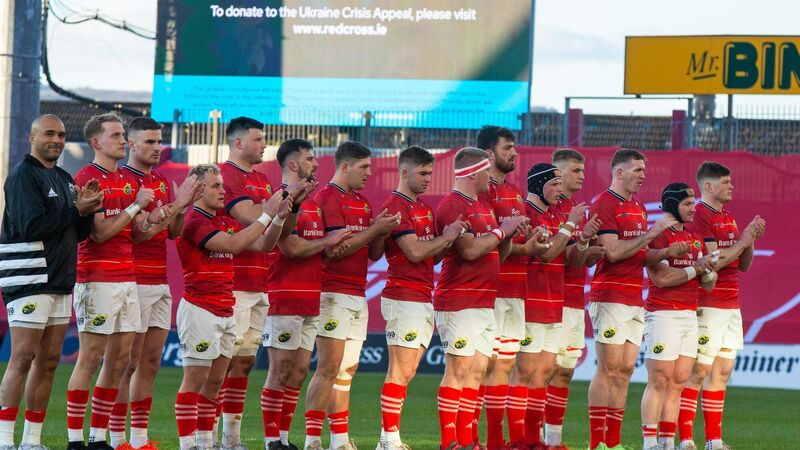Michael Moynihan: War exposing plenty of hypocrisy around sport

The Munster team stand for a moments applause in support of the Irish Red Cross appeal to help in the Ukraine Crisis
The savagery in Ukraine shows no signs of abating, so perhaps it’s unseemly to muse on something as inconsequential as the disappearance of a few fig leaves of sporting hypocrisy.
But that seems to be happening as well, and we should discuss it.









